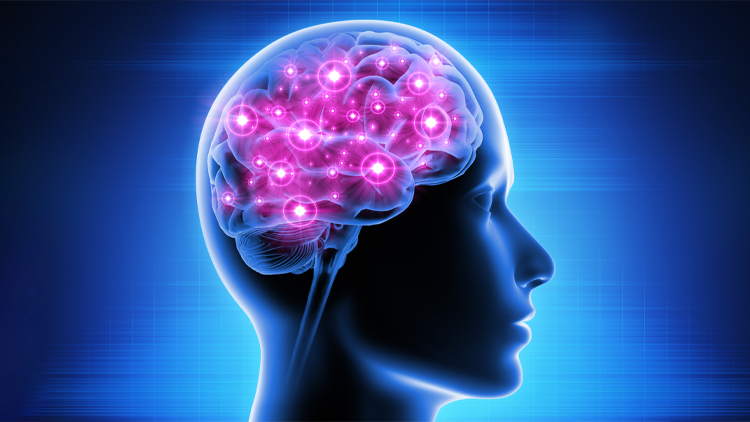
Maintain Cognitive Health is Our mental health may be impacted by the changes to our minds that come with aging. Cognitive loss is one of the most prevalent and potentially harmful effects of aging. Cognitive decline is not inevitable, though. Your brain’s vitality and health are essential to living a happy and healthy life. Here are some easy strategies to keep your brain healthy and functional.
Table of Contents
22 Ways to Improve Your Maintain Cognitive Health with Lifestyle Changes:
1. Regular Exercise:
There are many health advantages to doing moderate-to-intense aerobic exercises, such as enhanced heart and brain function. Engaging in physical activity has been linked to improved heart health, lower stress levels, and sharper brain function. It’s not necessary to work out hard; studies have shown that 20 to 30 minutes of moderate aerobic exercise can improve cognitive function over the long run.
2. Eat Healthy:
Your brain’s health can be supported by eating heart-healthy foods like nuts, salmon, whole grains, olive oil, and fresh produce. Your heart and brain will both benefit from eating these foods, which can help you Maintain Cognitive Health a healthy weight and lower your risk of heart disease.
3. Stimulate Your Brain:
Studies conducted on both humans and animals have demonstrated that mental activities generate new neurons, form connections between existing nerve cells, produce neurological plasticity, and develop a cognitive reserve against the loss of future nerve cells. Taking part in mentally taxing activities can Maintain Cognitive Healthand cognitive performance.
4. Manage Heart Health:
One important risk factor for age-related cognitive decline is high blood pressure. A balanced diet, regular exercise, abstaining from alcohol, stress management, and maintaining a healthy weight are just a few lifestyle modifications that can lower your risk.
5. Get Quality Sleep:
Inadequate sleep can negatively affect memory and focus. According to scientists, sleep enhances memory consolidation and helps eliminate abnormal proteins from the brain. Adults need an average of 7 to 9 hours of sleep per night for optimal cognitive function.
6. Stress Management:
Your cognitive abilities may be harmed by ongoing stress. Try practicing yoga, deep breathing exercises, or meditation to control your stress levels. By engaging in these activities, you can shield your brain from the damaging effects of long-term stress.
7. Socialize:
The development of a robust social network is critical to your general health and wellbeing. A longer, healthier life is associated with forming positive relationships through regular interactions with family, friends, and other people.
8. Quit Smoking:
Tobacco products contain nicotine, which can harm your heart and blood vessels and lessen the amount of oxygen that reaches your brain. Smoking can impair cognitive and memory abilities. Even though it can be difficult, giving up smoking can improve your general health and cognitive function significantly.

9. Adequate Nutrition:
To maintain the best possible brain function, a balanced diet is essential. Certain nutrients, like the omega-3 fatty acids in fish, the antioxidants in fruits and vegetables, and whole grains, can help maintain and improve the health of your brain. It’s also critical to maintain proper hydration because even slight dehydration can impair mental function.
10. Limit Screen Time:
Overuse of screens, particularly computers and smartphones, can shorten attention spans and impair cognitive abilities. Set limits on screen use and take regular breaks to minimize the negative effects and damage your Maintain Cognitive Health .
11. Stay Hydrated:
Drinking enough water is essential for good cognitive performance. Headaches and difficulty concentrating can result from dehydration. Throughout the day, ensure you stay hydrated.
12. Take Care of Your Blood Vessels.
Maintain Cognitive Health of your veins and arteries is crucial for both your heart and brain. Make sure to maintain your blood pressure, blood sugar, and cholesterol within normal limits by scheduling routine examinations.
Reduce sodium intake, adopt a Mediterranean diet, and up your physical activity level to lower blood pressure and cholesterol. Finally, since alcohol and tobacco use also have an impact on brain health, adults should limit their alcohol intake to one drink per day for women and two drinks per day for men.
13. Maintain an Active Mind.
Similar to a muscle, your brain is something you either use or lose. Playing cards, reading, making jigsaw puzzles, solving Sudoku puzzles, and crossword puzzles are just a few of the many things you can do to keep your mind sharp. Think of it as mental cross-training. Add a variety of activities to improve adaptability.
Payment-based brain-training programs are not recommended by the majority of medical teams. These programs frequently focus on memorization techniques that are not very useful in daily life, or they make more promises than they keep. Engaging in puzzles or reading can provide your brain with an equally vigorous workout. Additionally, limit how much TV you watch because it is a sedentary activity that doesn’t do much to stimulate your brain.
14. Do a Memory Test.
List everything that comes to mind, including groceries and tasks, and make an effort to remember it. See how many things you can remember an hour later. In order to maximize cognitive stimulation, the list should be as difficult as feasible. According to a recent study, older adults’ memory retention is improved when they write lists and arrange them.

15. Turn on the music.
Take up singing lessons or pick up an instrument.Acquiring novel and intricate abilities is advantageous for the aging brain.. Although research on the topic is limited, a review that was previously published in The Gerontologist suggested that musical activities, like playing an instrument, joining a choir, or learning to play the piano, have shown particular promise for supporting Maintain Cognitive Health & healthy brain aging.
16) Perform mental math.
Solve problems without using a computer, pencil, or paper. According to a small study that was published in Advances in Experimental Medicine and Biology in 2021, participants’ awareness appeared to improve when they solved math problems. By multitasking this exercise, you can increasetp Maintain Cognitive Health its challenge and benefits.
17. enrol in cooking courses.
Learn how to make new recipes. The senses of smell, touch, sight, and taste are all used when cooking, and each one activates a different area of the brain. Cooking also involves cognitive skills like meal planning, problem solving, creating shopping lists, and multitasking, according to Cleveland Clinic.
18. Take Up a Language Course.
Speaking and listening are two ways that learning a new language engages the brain. Furthermore, despite the paucity of research, a meta-analysis that was published in October 2020 in Psychological Bulletin and Review discovered that bilingualism was linked to a lower risk of cognitive decline.
19. Make a mental blueprint.
After you get home from a trip, try drawing a map of a place you’ve been. Re-visit this routine each time you travel. A previous study found that those who successfully memorized the map displayed stable changes in brain structure and improved visuospatial skills. The study focused on London taxi drivers, who are expected to memorize the city’s complex layout.
20. Push Your Tasting Palettes.
When you eat, try to recognize the different spices and ingredients in your food. The various brain regions involved in food recognition are activated by this exercise.
21. Sync Your Eyes and Hands.
Try taking up a new hobby that requires fine motor skills to enhance your hand-eye coordination. According to Harvard Health Publishing, this could include things like Tai Chi, racket sports, knitting, painting, drawing, or playing video games.
22. Take Up a Novel Sport.
Get moving and start exercising. According to a review that was published in December 2019 in Frontiers in Psychology, improving your strength, balance, and aerobic fitness can help keep your brain healthy as you age. Marley offers activities like yoga, tennis, or golf to improve Maintain Cognitive Health & brain health, but Harvard Health Publishing suggests swimming to improve brain function.
conclusion:-
Seeking expert advice from your primary care physician is crucial if you are worried about the state of your memory or brain. This information is not intended to be medical advice; rather, it is offered for general knowledge.

